Best Crossbow Bolts + Buyer’s Guide
Bolts can make or break your whole hunt. Even the best crossbow in the world is almost useless with the wrong bolts. Personally, I’ve found using the bolts that are just right for my crossbow means I’m more likely to land a precise shot. But what are the best types of crossbow bolts for your needs?
After much trial and error, I’ve put together a list of what I consider the best crossbow bolts on the market. One thing you should look out for is safety above all else and use bolts that are the right size and fit for your crossbow. If not, there’s a chance you can hurt yourself, or even damage your equipment.
When you’re trying out the bolts I’ve shortlisted here, make sure to check if they fit the specs your crossbow manufacturer recommends, and then pick the right one.
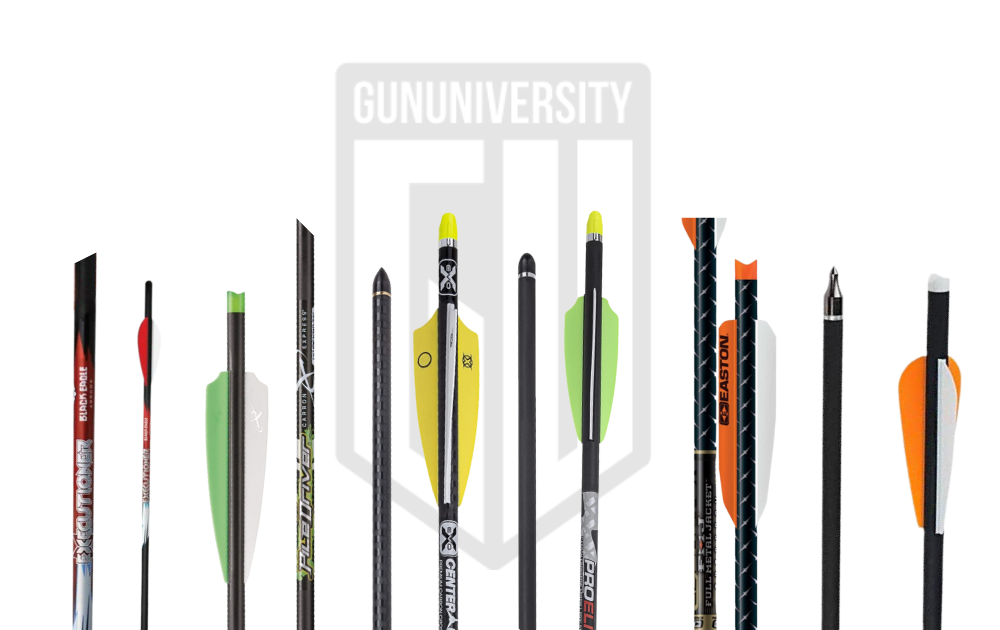
How I Chose the Best Crossbow Bolts
As someone who’s been passionate about hunting for nearly two decades, my favorite weapon for the job is the crossbow. I’ve had the chance to try out all sorts of bolts, some even sent to me by manufacturers. When putting together this article, I thought about what’s worked well for me and reached out to some top crossbow shooters in the industry for their thoughts and recommendations. They also shared some of their personal favorites. As a result, I’ve compiled a list of what I believe are the best crossbow bolts out there.
Keep in mind that not all bolts are made the same, and there’s no one-size-fits-all standard for comparing them. Bolt preferences can be pretty personal, so what’s perfect for me might not be ideal for you. That’s why instead of ranking the crossbow bolts, I’ve chosen the ones that are the best for each category. So, let’s jump right in!
Best Crossbow Bolts by Category
The first part of choosing the right bolt comes down to knowing what you plan to use it for, because different crossbow bolts may perform very differently in the same situation. The bolt that might be good for a veteran hunter is not going to be the best choice for someone who is taking up shooting for the first time. So, instead of ranking the crossbow bolts, I’ve chosen the ones that are the best for each category.
Best Crossbow Bolts
Best Overall TenPoint EVO-X CenterPunch | 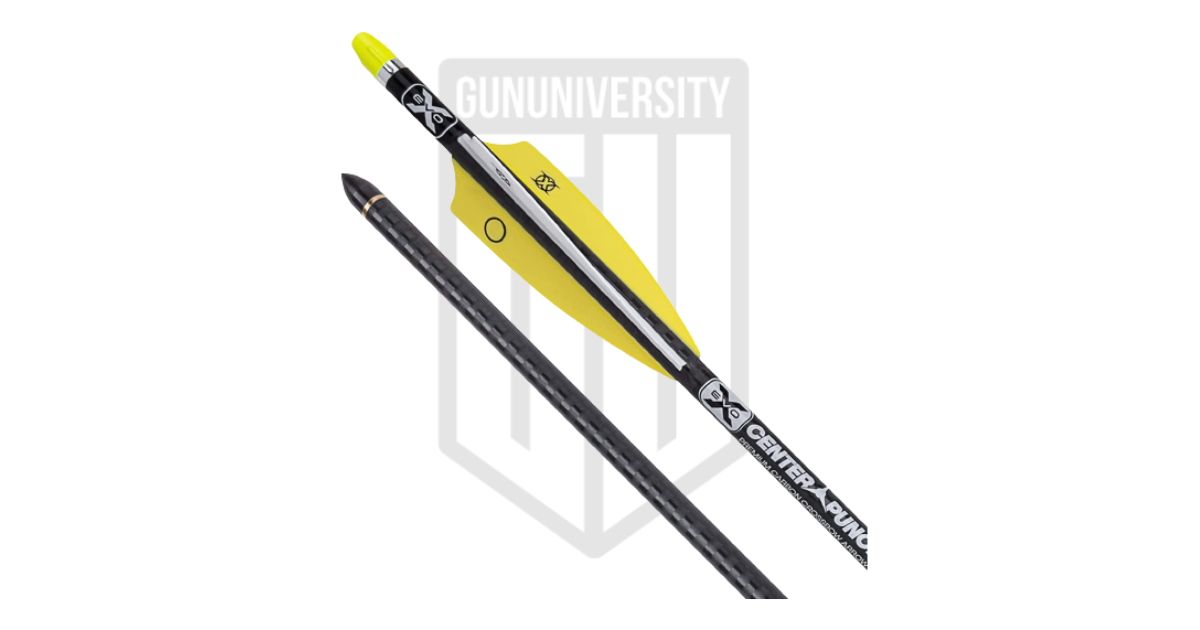 |
| Buy on Amazon |
Best For Hunting TenPoint Lighted Pro Elite 400 | 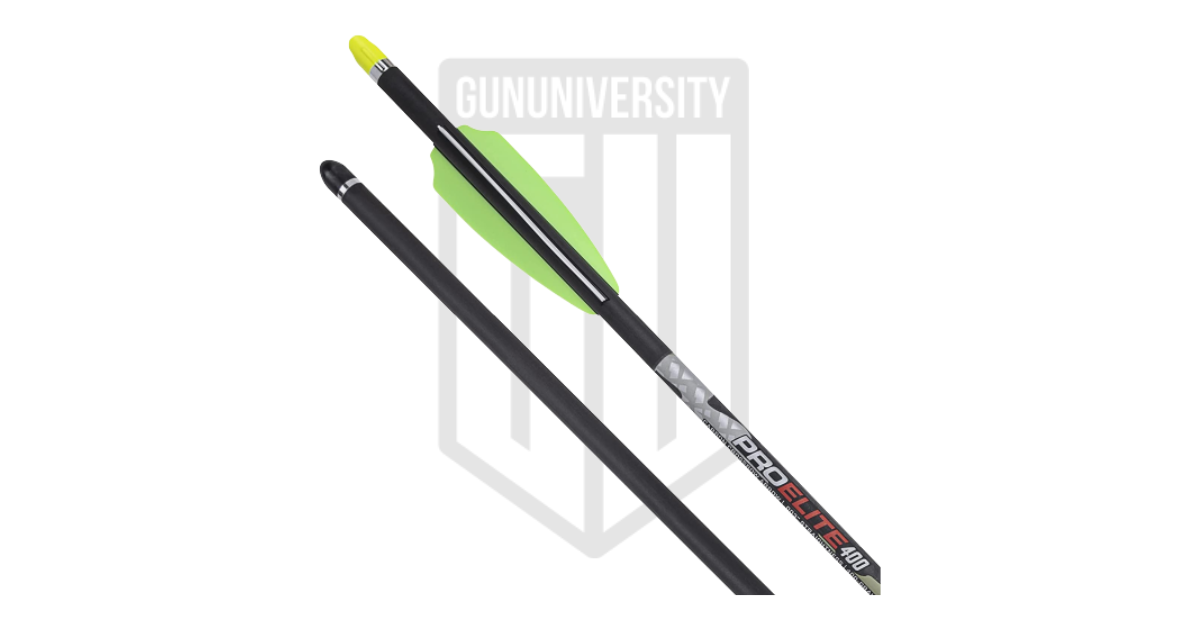 |
| Buy on Amazon |
Best Heavyweight Carbon Express PileDriver | 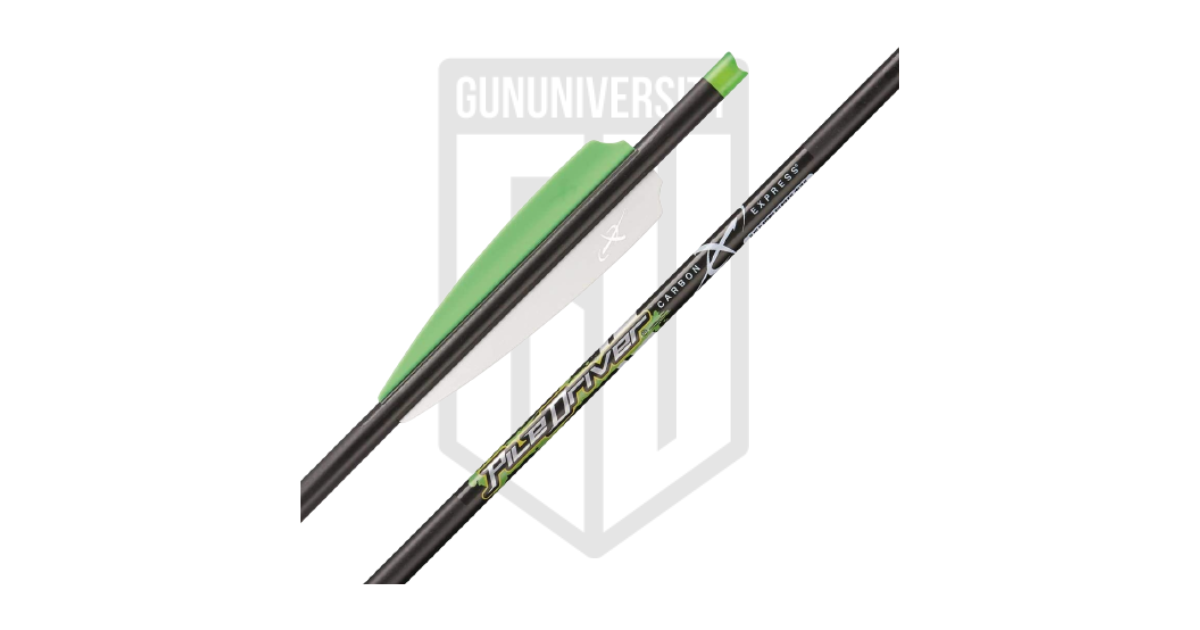 |
| Buy on Amazon |
Best Aluminum Easton FMJ Crossbow | 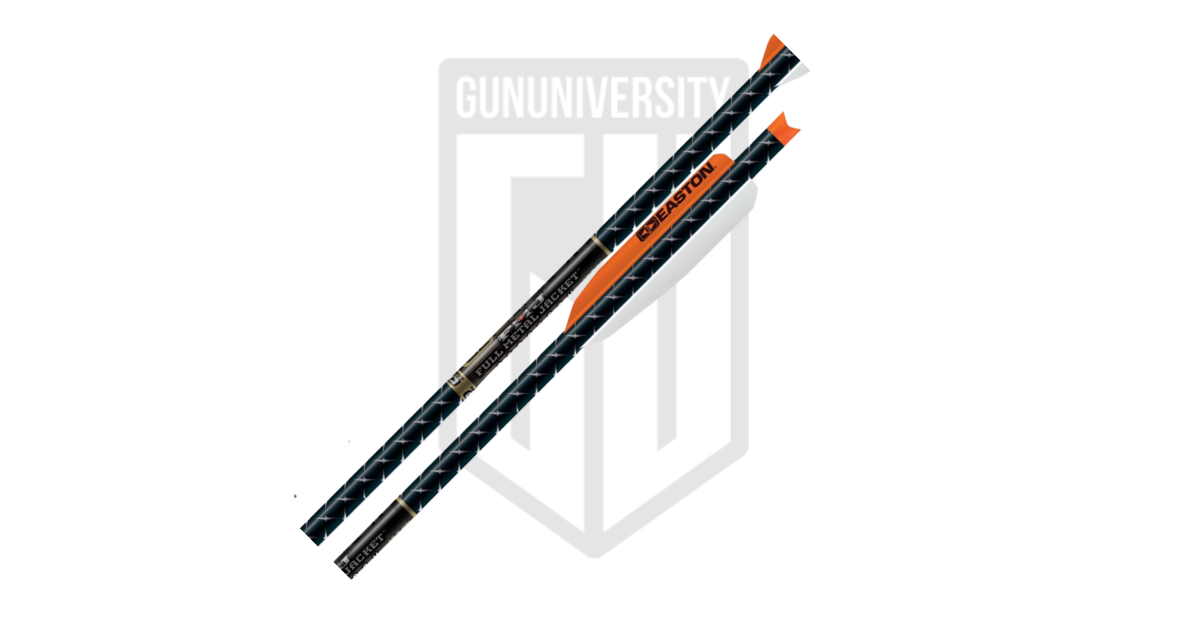 |
| Buy on Amazon |
Best Beginners REEGOX Bolts | 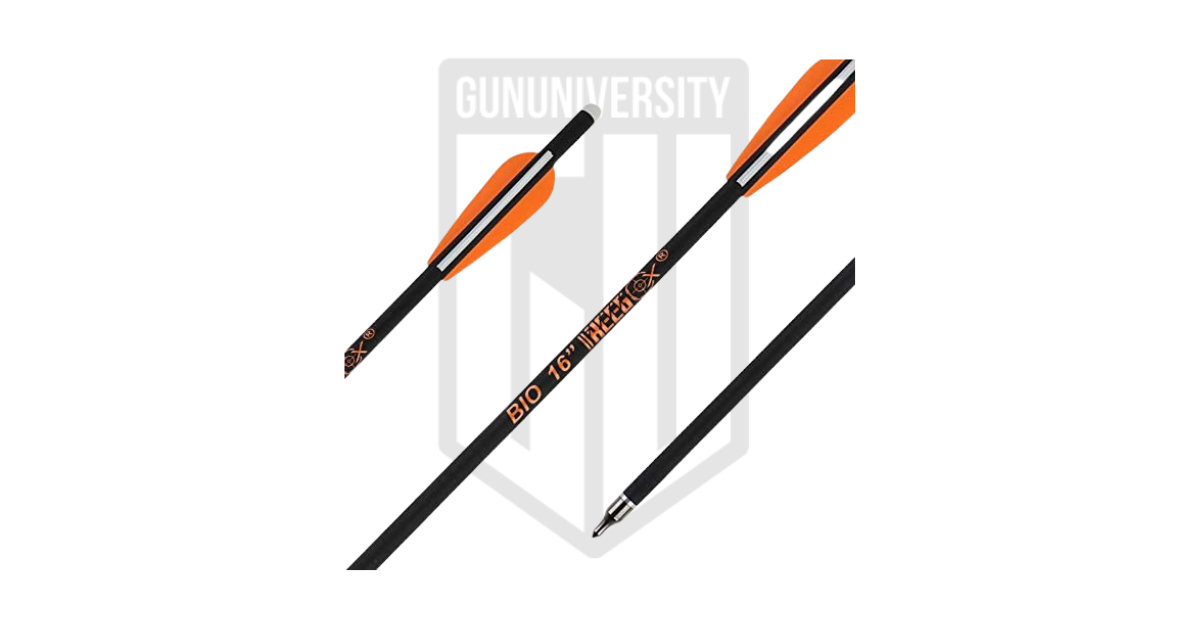 |
| Buy on Amazon |
Best Budget Black Eagle Executioner | 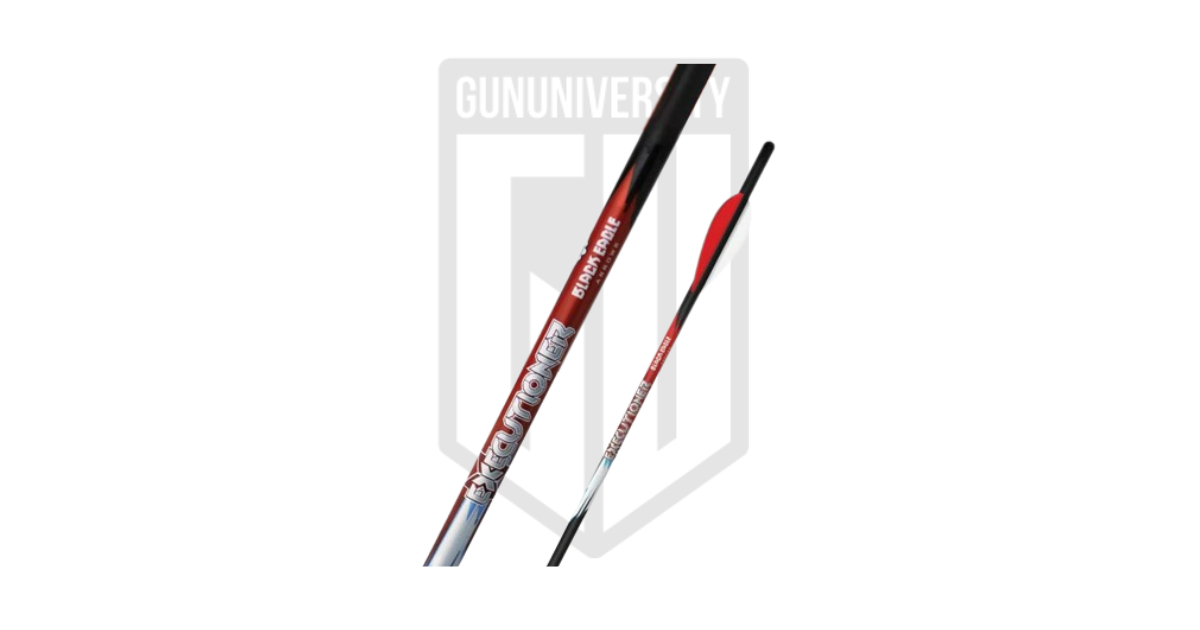 |
| Buy on Amazon |
Best Crossbow Bolts – Specifications
Below is a table of the crossbow bolt specs. Click the name of the bolt to jump to that review.
| Best Crossbow Bolts | Length (in) | Weight With Point (grains) | Straightness (in) | Nocks |
|---|---|---|---|---|
| TenPoint EVO-X CenterPunch | 20 | 465 | 0.001 | Alpha-Blaze Lighted Nock |
| TenPoint Lighted Pro Elite 400 | 20 | 400 | 0.003 | Alpha-Nock |
| Carbon Express PileDriver | 20 | 442 | 0.004 | Lighted Moon Nocks |
| Easton FMJ Crossbow | 22 | 274 | 0.003 | Moon Nocks |
| REEGOX Bolts | 16 | 368 | 0.001 | Moon Nocks |
| 20/22 | 323 | 0.001/0.003 | Flat |
Best Crossbow Bolts
Here is our list for the best crossbow bolts:
- TenPoint EVO-X CenterPunch
- TenPoint Lighted Pro Elite 400
- Carbon Express PileDriver
- Easton FMJ Crossbow
- REEGOX Bolts
- Black Eagle Executioner
Best Crossbow Bolts – Reviews
Let’s take a detailed look at each of these crossbow bolts alongside their specs to see why I believe they are the best in their category.
TenPoint EVO-X CenterPunch Specs
- Length (in) 20
- Weight with Point (grains) 465
- Straightness (in) 0.001
- Nock Alpha-Blaze Lighted Nock
TenPoint EVO-X CenterPunch Review
TenPoint is a familiar name for any serious crossbow shooter and, I have to say, they’ve knocked it out of the park with their bolts as well as their bows. I think the EVO-X CenterPunch is one of their finest creations and easily earns the title of the best overall crossbow bolt in my list.
They make these bolts out of carbon and, at a standard weight of 455 grains, they’re heavy enough to maximize both flight and penetration. So if you’re looking for something that cuts deep and shoots fast, these are great.
What sets them apart is TenPoint’s design which is a high modulus carbon shaft with a hoop strength of 33 million lbs per square inch, reinforced by a Lazer-Tech carbon weave. This ensures durability and performance under pressure.
During my testing, the CenterPunch bolts stood out. Each bolt was inspected for straightness to a tolerance of .001 inch, and weight-grain matched to within one grain per arrow. This results in unmatched field consistency. Shooting with my CP400, I achieved tight groupings effortlessly, showcasing the precision engineered into every bolt.
However, there’s a caveat. The CenterPunch bolts come with TenPoint’s Alpha nock, designed for their crossbows. While it enhances accuracy, it may not be compatible with all crossbow brands, potentially voiding warranties. So, always review manufacturer specifications before using the Alpha nock with non-TenPoint or Wicked Ridge crossbows.
Other than that, I’ve been using the EVO-X CenterPunch for over a year now and it’s been smooth sailing.
TenPoint EVO-X CenterPunch Pros and Cons
- Increased spine consistency
- Increased strength
- Consistent arrow flight
- Expensive
- Limited length options
TenPoint Lighted Pro Elite 400 Specs
- Length (in) 20
- Weight with Point (grains) 400
- Straightness (in) 0.003
- Nock Alpha-Nock
TenPoint Lighted Pro Elite 400 Review
Yes, it’s another TenPoint bolt but, hear me out, the Lighted Pro Elite 400 is a fan favorite and a lot of hunters swear by it. Pair it with the Grim Reaper Razorcut Whitetail Special mechanical broadhead or a Magnus Hornet fixed blade broadhead and you’ve got an unbeatable combo for hunting deer.
At 400 grains, it falls on the lighter side of standard weight, making it less suitable for large game like elk and moose. However, it’s ideal for Whitetail deer, and I wouldn’t be surprised if you take down several next season.
People wonder why I chose the standard Lighted Pro Elite 400 over a heavyweight bolt for a mid-size game. True, heavies work, but they limit range and speed. I save them for a larger game.
The Pro Elite 400 also uses an Alpha nock. By itself, it’s not a problem and even great if you have a crossbow that allows the use of the nock. Just make sure your crossbow is compatible with it before using it.
The nock is also equipped with a built-in LED, which is another significant benefit if you’ll be out during lowlight hours.
For me, accuracy is key, and I prefer shooting from shorter distances when hunting Whitetail. While some of my buddies swear by the Victory Archer X for its better construction, lower cost, and hand-fletched design, I stick with the lighted Pro Elite 400. For me, it’s the best hunting crossbow bolt for medium-sized game at close range.
TenPoint Lighted Pro Elite 400 Pros and Cons
- Advanced carbon fiber construction
- Easier visibility
- Greater string engagement
- Not enough penetrative power for large game
Best Heavyweight Carbon Express PileDriver
Carbon Express PileDriver
- Length (in) 20
- Weight with Point (grains) 442
- Straightness (in) 0.004
- Nock Lighted Moon Nocks
Carbon Express PileDriver Review
I’ve been mostly talking about standard-weight bolts, but when you’re going after a bigger game, you’d need something that can penetrate deep and crush bone. That’s where the Carbon Express PileDriver comes in, standing out as the best heavyweight crossbow bolt on my list.
From what I saw, these bolts are designed to maximize penetration. Their heavy carbon shaft packs incredible energy that can knock down even the largest game. So far, I have been impressed by their toughness and durability, and I haven’t broken any. Plus, you can use them multiple times.
That said, I’ve noticed that its weight does impact speed, with each shot sacrificing around 30 FPS (feet per second). However, this isn’t a deal breaker for me because its penetration power outweighs the loss in speed.
The Carbon Express PileDriver bolts work with both half-moon and flat nocks. While they’re designed for Carbon Express crossbows, they also perform well with other crossbow brands.
Carbon Express PileDriver Pros and Cons
- Powerful penetration
- Spine consistency for greater accuracy
- Affordable
- Reduced arrow speed due to weight
Best Aluminum Easton FMJ Crossbow
Easton FMJ Legend Specs
- Length (in) 22
- Weight with Point (grains) 274
- Straightness (in) 0.002
- Nock Moon Nocks
Easton FMJ Review
I’m on the fence about carbon bolts, but if you’re an aluminum kind of guy, the best one out there is the Easton FMJ.
This bolt features a high-strength carbon core wrapped with 7075 aerospace aluminum. I know it’s not pure aluminum, but hear me out. These bolts combine the strengths of both materials: the carbon core provides incredible strength and penetration power, while the aluminum ensures a straight flight to the target. Their straightness is an impressive +/- 0.002 inches per batch.
The FMJ Legends are reliable and accurate. I use them mainly for target shooting and they’ve performed well. They maintain good accuracy up to 30 yards, with a slight drop-off beyond that.
While I prefer the Pro Elite 400s for deer hunting, the FMJ Legends are also a viable option. They’re known for clean pass-throughs. Just be mindful of the aluminum wrap, as it’s more fragile than carbon.
Some might argue that the Wicked Ridge Magnum XX75 is the best aluminum bolt due to its precision. But for me, strength and durability are paramount, and the Easton FMJ Legends outshine all other aluminum bolts in these aspects. That being said, the Easton FMJ Legends stand out as the best aluminum crossbow bolts on my list.
Easton FMJ Pros and Cons
- Boosted kinetic energy
- Deeper penetration
- Easy target pull
- Intermittent care required for aluminum wrap
Best for Beginners REEGOX Bolts
REEGOX Bolts Specs
- Length (in) 16
- Weight with Point (grains) 368
- Straightness (in) 0.001
- Nock Moon Nocks
REEGOX Bolts Review
For beginners, it’s best to opt for affordable and durable bolts for practice rather than focusing on top performance or deep penetration. The REEGOX is ideal when just starting out. Once you’ve grasped the basics, you can transition to more advanced bolts.
It is a lightweight bolt weighing 368 grains, decent enough for practice. It’s durable and can withstand repeated use at the range. Importantly, a pack of these bolts is very affordable, making replacement costs minimal if you get them damaged.
It’s important to keep in mind that lightweight bolts aren’t ideal for hunting if you’re aiming for a humane kill. If you share this concern, I suggest using the REEGOX bolts solely for target practice. While they are decent bolts, they may not offer the most consistency or accuracy. Overall, the REEGOX Bolts take the best beginner crossbow bolt spot on my list.
REEGOX Bolts Pros and Cons
- Durable
- Beginner-friendly
- Lightweight
- Not very accurate
Black Eagle Executioner Specs
- Length (in) 20/22
- Weight with Point (grains) 323
- Straightness (in) 0.001/0.003
- Nock Flat
Black Eagle Executioner Review
For those on a budget seeking the best value, I strongly recommend the Black Eagle Executioner. They are dead straight, come in a twelve-pack, and with the right broadhead and nock, can give you some serious penetration. Each 12-pack is also spine-matched, so you can expect consistent performance from every bolt.
It also comes with a brass executioner tip insert which, when paired with the bolt can crush bone and cartilage to hit the kill zone. Despite being fairly light compared to others on the list, I was pleasantly surprised by their performance during a Whitetail hunt.
The only problem I have with it is the fletching at the back. I wish they were better positioned on the spine to improve the bolt’s spin, but that’s just me nitpicking.
Now, you can get cheaper options like the Barnett Outdoors Carbon Crossbow Bolts, but I believe a good budget crossbow bolt isn’t necessarily the cheapest. Instead, it’s the one that offers the best value for money. We can only really use the Barnett Outdoors Carbon with a few Barnett models and is not as sturdy as the Executioner. Because the Executioner is more versatile and has a stronger build, it’s my pick for the best budget crossbow bolt on my list.
Black Eagle Executioner Pros and Cons
- Designed for low-light hunts
- Durable
- Dependable
- The vanes are not well positioned
Best Crossbow Bolts – Buyer’s Guide
If you are new to crossbows and their accessories, buying a good bolt can be a confusing process. It’s normal to feel lost and have a lot of questions. Let’s narrow this down and get you the right answers.
What To Look For When Buying Crossbow Bolts
There’s just so much to keep track of when you want to buy a good crossbow bolt, so buckle up, because this is going to be a crash course on what you need to look for when bolt shopping.
Purpose
When buying bolts, you need to first decide what you are going to use them for. If it’s target shooting, opt for lightweight bolts. For hunting, choose between standard and heavyweight bolts based on your game. The range you’d need for target practice, on the other hand, depends on your personal preference.
Length
Bolts can vary from 16 to 22 inches. Shorter bolts hit harder and accelerate faster, while longer ones travel further with less power. Stick to the bolt length recommended by your crossbow manufacturer to avoid damaging your crossbow or getting disappointing shots.
Remember, your crossbow bolt should be shorter than your crossbow’s groove. You’ve found the perfect bolt length when it matches up exactly with the groove.
Distance
If you’re shooting within 30 yards, any crossbow bolt should suffice. For distances beyond 40 yards, you should opt for higher quality and straighter bolts. I tend to stick to the 40-yard limit when I’m out in the field, so I can vouch for how these bolts perform.
Nock
The nock is the point where your bolt meets the crossbow string. With so many types, you’re probably wondering, “Which one is for me?”. Don’t worry, I’ve prepared a quick breakdown that should make it easier for you to decide:
- Flat nock – As the name suggests, the flat nock has a flat surface for nocking the string. For beginners looking for a safer option, the flat nock is ideal because it offers a wider surface area for the string to rest on and is easier to manage.
- Half-moon nock – The half-moon nock is suitable for experienced shooters who prefer a defined groove for the string. However, always keep in mind that bad positioning with the half-moon nock can cause nasty accidents.
- Omni nock – The omni nock is basically the half moon nock but with more grooves. The grooves let you nock it more angularly and can give you a better grip than the flat nock.
- Capture nock – The capture nock is the half moon nock but with deeper grooves.
- Lighted nock – This nock is great for hunting in low light: it illuminates your shot and the flight path of your bolt, letting you track it down and retrieve it easily after shooting.
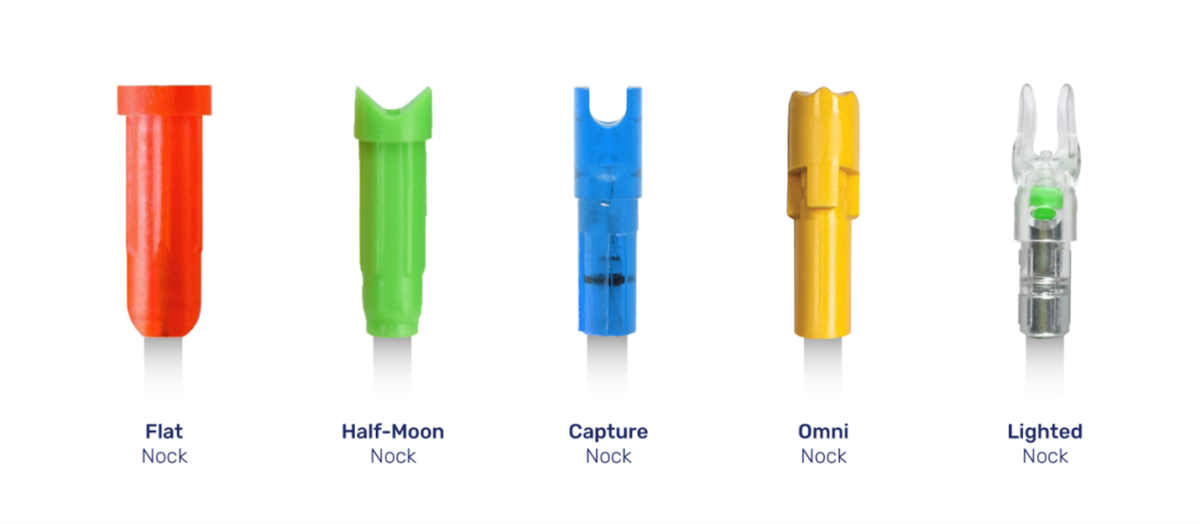
I also need to mention the Alpha nock, which is a patented TenPoint nock. It has a deeper groove than any of the other nocks and features elongated points known as ‘ears.’
Shaft Material
There are three main types of crossbow bolts you’ll come across:
- Aluminum bolts – They are cheaper and heavier than carbon bolts, but the issue is that they tend to bend with prolonged use. A bent bolt won’t fly straight, right? While they require frequent repairs or replacements over time, they are easy to fix. However, fresh out of the packet, they can deliver a powerful and accurate shot.
- Carbon bolts – These are my favorites because they don’t bend with use and remain precise for a long time. Being very light and flexible, they have a flatter flight path and are less prone to drifting in the wind compared to heavier bolts. Carbon bolts offer faster shooting speed, but you may sacrifice some power. While they are durable and don’t break easily, repairs can be expensive if you do damage them.
- Combination bolts – As the name suggests, they make these bolts from a combination of both aluminum and carbon fiber. They are slightly more expensive than carbon bolts, but the upside is that they are strong, lightweight, and have a good range. Combination bolts bring the best of both worlds.
Tip Insert
There are several types of tips you can use on your bolt, depending on what you’re shooting:
- Field point tip – For target shooting, opt for a field point tip. It flares outwards at the base, ensuring superior accuracy without causing excessive damage. Another advantage is its suitability for hunting small game, eliminating the need for separate bolts. It’s versatile, and you can save money by hunting with a field point tip now and then.
- Broadhead tip – A broadhead has blades attached at the tips and is designed to cause damage. The idea is that a broadhead tip would penetrate your quarry and expand to cause additional damage.
- Bullet point tip – Shaped like a bullet, these bolt tips don’t cause any additional damage to your target like the other tip types intended for hunting. While they lack precision and deep penetration compared to field point tips, they work well for hunting small game and certain target practices.
- Blunt point tip – If you can aim accurately, blunt point tips are excellent for hunting small game. These tips aren’t designed to penetrate your target but instead are meant to kill with blunt force on impact.
Shaft Diameter
The key point to remember about your shaft is that it should be thinner than your ferrule, where you insert the shaft into your broadhead. Otherwise, you may lose penetration, and changing broadheads can be difficult. Keep this in mind when purchasing your broadheads.
Crossbow Speed
Your crossbow’s rated speed (FPS) indicates its power. More power means heavier bolts can be shot with greater speed, accuracy, and penetration. Crossbows are typically rated between 260 and 400 FPS. But choose carefully for crossbow hunting, as faster bows may be noisier and scare off your game. That’s why I suggest hunters go for around 300 FPS crossbows for less vibration noise.
Weight in Grains
Another way to classify the bolts is by weight class. I categorized the bolts by weight class and added a table below to show the category for each weight.
| Classification | Weight (grains) |
|---|---|
| Lightweight Bolts | 350-399 |
| Standard Bolts | 400-459 |
| Heavyweight Bolts | 460+ |
Bolt weight impacts your shot in many ways. From my experience, lighter bolts are fast but lack range, making them better for target shooting than hunting. On the other hand, heavier bolts offer more accurate, deeper penetrating shots for a quicker, more humane kill when hunting. If you opt for heavier bolts, you’ll need to gain more control over your shot. My advice? Go for a bolt with a longer shaft and larger fletching for better flight accuracy.
Spine
The “spine” of a bolt refers to its stiffness or flexibility. Lower spine ratings mean stiffer bolts, while higher ones indicate more flexibility, requiring a bow with more draw weight. It’s important, especially with high FPS bows, to match them with suitable bolts to prevent injuries and equipment damage.
FOC: Weight Forward Of Center
Every bolt has a balancing point, and the FOC is how far past the exact middle of your bolt the balance point is located. We usually express it as a percentage.
It can be confusing to understand, so take a look at the image below. Here, 12% means your balance point is 12% past the exact center of your bolt.
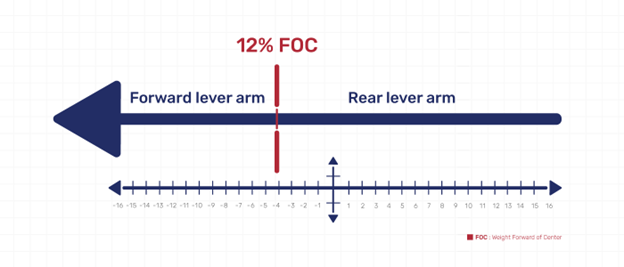
Now why is this important? Your FOC really determines how much the fletching/vanes at the back can balance your arrow. The further your FOC, the better your arrow can be guided.
The recommended FOC for hunting is 10-15%. This is mainly because the broadhead has a larger surface area and that can destabilize the arrow in flight. So a higher FOC improves stabilization.
Fletching
Bolts have three main fletching types (straight, offset, and helical) that influence their flight. The straighter the bolt, the more accurate it tends to be due to less in-flight bending. Bolts’ straightness typically ranges from .001″ to .006″, with .001” being the straightest and often pricier. Offset and helical fletchings may create more drag, but they’re designed to correct your bolt’s flight path.
Crossbow Warranty And Manufacturer Recommendations
When you get a crossbow, the manufacturer usually includes a manual suggesting a specific bolt length, weight, and nock type. I advise sticking to these recommendations to avoid damaging your crossbow or voiding your warranty. Before you make your purchase, look out for bolt packages and vendors that sell recommended bolts along with the bow. Some ready-to-shoot bolts may not be super high-tech, but at least they’ll fit right and shoot safely.
What Is The Difference Between Arrows And Bolts?
Most of us, including me, use “crossbow bolts” and “crossbow arrows” interchangeably, as there’s little difference these days. But traditionally, “bolts” referred to crossbow projectiles.
In the past, blacksmiths made bolts and fletchers made longbow arrows. Both arrows and bolts have the same components: the shaft, fletching, broadhead, and nock. The main difference is that bolts are shorter and heavier (16” to 22”) than arrows (27”- 32”).
In crossbow talk, if someone mentions using bolts and arrows with their bow, they’re talking about the same thing. So, don’t get too hung up on it.
Just remember, not all crossbow arrows or bolts will be right for your crossbow. Always check the length and weight your crossbow manufacturer recommends. As long as you stick to that, it doesn’t matter what you call them. And if you want to learn more about the difference between a crossbow and a compound bow, learn more here.
Conclusion
Picking the bolts for your crossbow is definitely a big decision. Whether you are hunting or target shooting, having the right bolts that you find comfortable to work with can be the deciding factor between success and failure.
Finding the right bolts for you depends on many factors, a lot of them personal. So while the reviews will be of help, it really comes down to what you need from the bolts. I also recommend staying curious and trying out different ones. They might just surprise you.
Best Crossbow Bolts – FAQs
Are heavier crossbow bolts better?
Lighter crossbow bolts shoot faster, but the heavier ones will produce more kinetic energy at impact. If you are an archer or you do competitive shooting, go for a lighter crossbow bolt, as lighter ones will travel fast. For hunting, I prefer a standard weight or heavyweight crossbow bolt because the penetration power helps me catch my game better.
What is a good weight for a crossbow bolt?
400 to 450 grains is the standard weight for a crossbow bolt. If you opt for a heavier one, it will have a lower speed than what they advertised.
Are longer crossbow bolts more accurate?
Yes, longer crossbow bolts can be slightly more accurate if both have the same fletching. However, the difference is minimal. Accuracy relies more on factors like FOC (front of center) balance and whether the fletching can properly stabilize and guide the bolt. Ultimately, accurate bolts are determined by balance and stabilization rather than just length.
Can I use regular hunting arrows with my crossbow?
It’s best not to use regular hunting arrows with your crossbow. Crossbow bolts are built to handle the specific forces from a crossbow, and using regular arrows could damage your gear or even cause injury. Stick to the bolts recommended by your crossbow manufacturer for safe and reliable performance.
Recent Posts
February 12, 2026
February 12, 2026
February 11, 2026
February 9, 2026

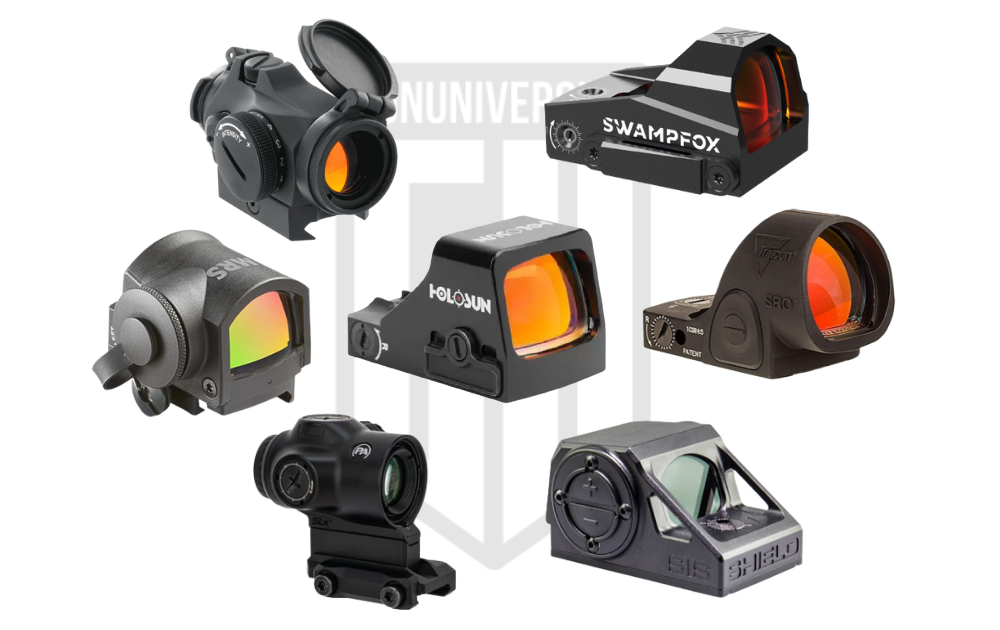
![7 Best Gun Cleaning Kit [2026]: Universal & Caliber Specific Kits](https://gununiversity.com/wp-content/uploads/2021/09/Best-Gun-Cleaning-Kits.png)
![Best 9mm Magazine Speed Loader [Updated]](https://gununiversity.com/wp-content/uploads/2021/09/best-9mm-speedloaders.png)
![Best 9mm Pistols [2026]: Ranked by Size & Use](https://gununiversity.com/wp-content/uploads/2021/09/Best-9mm-featured-1.jpg)